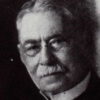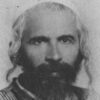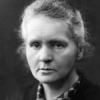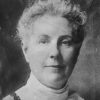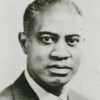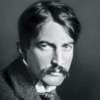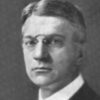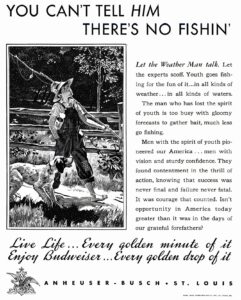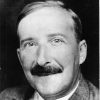Better pass a Danger once, than be always in Fear.
Thomas Fuller (1654-1734) English physician, preacher, aphorist, writer
Introductio ad Prudentiam, Vol. 1, # 114 (1725)
(Source)
Quotations about:
courage
Note not all quotations have been tagged, so Search may find additional quotes on this topic.
Fear comes from uncertainty. When we are absolutely certain, whether of our worth or worthlessness, we are almost impervious to fear. Thus a feeling of utter unworthiness can be a source of courage.
Eric Hoffer (1902-1983) American writer, philosopher, longshoreman
The Passionate State of Mind, Aphorism 87 (1955)
(Source)
Courage can’t see around corners but goes around them anyway.
Mignon McLaughlin (1913-1983) American journalist and author
The Neurotic’s Notebook, ch. 4 (1963)
(Source)
Hope, like faith, is nothing if it is not courageous; it is nothing if it is not ridiculous.
Youth is not a time of life; it is a state of mind; it is not a matter of rosy cheeks, red lips and supple knees; it is a matter of the will, a quality of the imagination, a vigor of the emotions; it is the freshness of the deep springs of life.
Youth means a temperamental predominance of courage over timidity of the appetite, for adventure over the love of ease. This often exists in a man of sixty more than a boy of twenty. Nobody grows old merely by a number of years. We grow old by deserting our ideals.
Years may wrinkle the skin, but to give up enthusiasm wrinkles the soul. Worry, fear, self-distrust bows the heart and turns the spirit back to dust.
Whether sixty or sixteen, there is in every human being’s heart the lure of wonder, the unfailing child-like appetite of what’s next, and the joy of the game of living.
When the aerials are down, and your spirit is covered with snows of cynicism and the ice of pessimism, then you are grown old, even at twenty, but as long as your aerials are up, to catch the waves of optimism, there is hope you may die young at eighty.
Samuel Ullman (1840-1924) German-American businessman, poet, humanitarian, religious leader
“Youth” (1918)
(Source)
This poem was a favorite of Douglas MacArthur, who had a copy hung in his office in Tokyo, and was responsible for much of the author's subsequent fame in Japan.
Yes, I am personally the victim of deferred dreams, of blasted hopes, but in spite of that I close today by saying I still have a dream, because, you know, you can’t give up in life. If you lose hope, somehow you lose the vitality that keeps life moving, you lose that courage to be, that quality that helps you go on in spite of it all. And so today I still have a dream.
Martin Luther King, Jr. (1929-1968) American clergyman, civil rights leader, social activist, preacher
“A Christmas Sermon on Peace,” Ebenezer Baptist Church, Atlanta (1967-12-24)
(Source)
Broadcast by CBC Radio as the final of King's Massey Lectures, "Conscience for Change." Collected in Conscience for Change, republished after his assassination as The Trumpet of Conscience (1968).
And it is not always because of valour or chastity that men are valiant or women chaste.
[Et ce n’est pas toujours par valeur et par chasteté que les hommes sont vaillants et que les femmes sont chastes.]François VI, duc de La Rochefoucauld (1613-1680) French epigrammatist, memoirist, noble
Réflexions ou sentences et maximes morales [Reflections; or Sentences and Moral Maxims], ¶1 (1665-1678) [tr. Tancock (1959)]
(Source)
Introduced in the 4th ed. (1665).
(Source (French)). Alternate translations:
It may be further affirmed, that Valour in Men, and Chastity in Women, two qualifications which make so much noise in the World, are the products of Vanity and Shame, and principally of their particular Temperaments.
[tr. Davies (1669), ¶94]
And we are much mistaken, if we think that Men are always stout from a principle of Valour, or Women chast from a principle of Modesty.
[tr. Stanhope (1694)]
It is not always from the principles of valour and chastity that men are valiant, and that women are chaste.
[pub. Donaldson (1783), ¶446]
It is not always from valor and from chastity that men are valiant, and that women are chaste.
[ed. Gowens (1851), ¶2]
It is not always from valour or from chastity that men are brave, and women chaste.
[tr. Bund/Friswell (1871)]
Men are not always brave because courageous, nor women chaste because virtuous.
[tr. Heard (1917)]
So it is not always courage that makes the hero, nor modesty the chaste woman.
[tr. Stevens (1939)]
It is not always valor which makes men valiant, nor chastity that renders women chaste.
[tr. FitzGibbon (1957)]
And it is not always through valor and chastity that men are valiant and women chaste.
[tr. Kronenberger (1959)]
It is not always because of bravery or chastity that men are brave, and women chaste.
[tr. Whichello (2016)]
We are women: in some things, we hesitate.
But in others, no one can surpass our courage.[γυναῖκές ἐσμεν: τὰ μὲν ὄκνῳ νικώμεθα,
τὰ δ᾽ οὐκ ἂν ἡμῶν θράσος ὑπερβάλοιτό τις.]Euripides (485?-406? BC) Greek tragic dramatist
Auge [Αὐγῃ], frag. 276 (c. 408 BC) [tr. @sentantiq (2014)]
(Source)
Nauck (TGF) frag. 276, Barnes frag. 18, Musgrave frag. 4. (Source (Greek)). Alternate translations:
Frail women as we are, too oft our fears
Subdue us, but at other times our courage
By none can be exceeded.
[tr. Wodhall (1809)]
We are women, sometimes defeated by fear,
sometimes unsurpassed in courage.
[Source]
So this is my wish, a wish for me as much as it is a wish for you: in the world to come, let us be brave — let us walk into the dark without fear, and step into the unknown with smiles on our faces, even if we’re faking them.
And whatever happens to us, whatever we make, whatever we learn, let us take joy in it. We can find joy in the world if it’s joy we’re looking for, we can take joy in the act of creation.
So that is my wish for you, and for me. Bravery and joy.Neil Gaiman (b. 1960) British author, screenwriter, fabulist
Blog entry (2012-12-31), “My New Year’s Wish”
(Source)
Cowardice or Bravery is never racial. You find both in every Country. No country has a monopoly on Bravery; great deeds of heroism is liable to break out in the most unexpected places.
Will Rogers (1879-1935) American humorist
“More Letters of a Self-Made Diplomat,” Saturday Evening Post (1932-03-12)
(Source)
Success is going from failure to failure without losing your enthusiasm.
Winston Churchill (1874-1965) British statesman and author
(Spurious)
Widely attributed to Churchill, but not found in his writings or contemporary reports of his speech. It's also attributed to Abraham Lincoln, with similar lack of provenance.
Variants:More information about this quotation:
- "Success is the ability to move from one failure to another without loss of enthusiasm."
- "Courage is going from failure to failure without losing enthusiasm."
- "To succeed is to fail repeatedly, but without losing enthusiasm."
This process of the good life is not, I am convinced, a life for the faint-hearted. It involves the stretching and growing of becoming more and more of one’s potentialities. It involves the courage to be. It means launching oneself fully into the stream of life.
All the world is a very narrow bridge, and the most important thing is not to be overwhelmed by fear.
כל העולם כולו גשר צר מאוד, והעיקר – לא לפחד כלל.
Nachman of Breslov (1772-1810) Ukrainian Jewish Hasidic leader, rabbi, kabbalist [רַבִּי נַחְמָן מִבְּרֶסְלֶב; of Bratslav; of Bracław]
(Paraphrase)
The original of this passage, in Nachman's Likutey Moharan, Part 2, 48:2, is:
[וְדַע, שֶׁהָאָדָם צָרִיך לַעֲבר עַל גֶּשֶׁר צַר מְאֹד מְאֹד וְהַכְּלָל וְהָעִקָּר שֶׁלּא יִתְפַּחֵד כְּלָל]
which is variously translated:
And know, a person needs to make his passage on a very, very narrow bridge, and the rule and the essence is to not be afraid at all.
[Source]
Know that [when] a person needs to cross a very, very narrow bridge, the general principle and main point is not to make oneself at all terrified.
[Source]
Now know, a person needs to pass over on a very, very narrow bridge, and the rule and the essence is to not be afraid at all.
[Source]
This Nachman quote was paraphrased and set to music in the Hebrew tune, "Kol Ha'Olam Kulo [כָּל הָעוֹלָם כֻּלוֹ]":
Kol ha'olam kulo
Gesher tzar me'od,
Veha'ikar lo le'fached klal.
Other translations of the song include:
More information about the song:
- "All the world is a very narrow bridge, and the essence is not to fear at all."
- "All the world is a very narrow bridge, and the essence is, don't be afraid at all."
- "The whole world is a narrow bridge, but the main thing is not to be at all afraid."
- "All the world is a very narrow bridge. / But the main thing to recall / Is to have no fear at all."
It seems that life is not easy for any of us. But what of that? We must have perseverance and above all confidence in ourselves. We must believe that we are gifted for something, and that this thing, at whatever cost, must be attained.
[La vie n’est facile pour aucun de nous. Mais quoi, il faut avoir de la persévérance, et surtout de la confiance en soi. Il faut croire que l’on est doué pour quelque chose, et que, cette chose, il faut l’atteindre coûte que coûte.]
Marie Curie (1867-1934) Polish-French physicist and chemist [b. Maria Salomea Skłodowska]
Letter to her brother Joseph (1894-03-18)
(Source)
(French (Source))
As quoted in Eve Curie Labouisse, Madame Curie: A Biography, ch. 9 (1937) [tr. Sheean (1938)].
A vast deal may be done by those who dare to act.
Therefore, rise. Force your breath, restore it
By that spirit which wins in every battle it fights,
Unless the beaten body says, “no more!”[E però leva sù; vinci l’ambascia
l’animo che vince ogne battaglia,
col suo grave corpo non s’accascia.]Dante Alighieri (1265-1321) Italian poet
The Divine Comedy [Divina Commedia], Book 1 “Inferno,” Canto 24, l. 52ff (24.52-54) [Virgil] (1309) [tr. Raffel (2010)]
(Source)
(Source (Italian)). Alternate translations:
Therefore rise up; your breathing short o'ercome
With Courage, for it ev'ry battle wins;
Unless your heavy limbs submit to sloth.
[tr. Rogers (1782)]
Arise!-- It ill befits the mounting mind
With mortal cares debas'd, to lag behind.
[tr. Boyd (1802)]
Thou therefore rise: vanish thy weariness
By the mind’s effort, in each struggle form’d
To vanquish, if she suffer not the weight
Of her corporeal frame to crush her down.
[tr. Cary (1814)]
Up then; o'ercome thy breathlessness by mind;
To win the battle mind shall never fail.
If by her own dull body's weight declined
She faint not.
[tr. Dayman (1843)]
And therefore rise! conquer thy panting with the soul, that conquers every battle, if with its heavy body it sinks not down.
[tr. Carlyle (1849)]
Then rouse thyself and conquer thy fatigue,
With mind victorious in every battle,
Unless the dull frame subdue its mettle.
[tr. Bannerman (1850)]
Up, up, then, up! conquer thy suff'ring breath,
That courage rouse which ev'ry battle wins,
If not kept down by the too-heavy flesh.
[tr. Johnston (1867)]
And therefore raise thee up, o'ercome the anguish
With spirit that o'ercometh every battle,
If with its heavy body it sink not.
[tr. Longfellow (1867)]
And therefore lift up, conquer the task with the mind that wins every battle, if with its heavy jody it throw not itself down.
[tr. Butler (1885)]
Therefore arise, thy weakness stem with worth
Of soul, that of all battles wins the prime,
Unless 'tis borne down by the body's dearth.
[tr. Minchin (1885)]
And therefore rise up, conquer the exhaustion with the spirit that conquers every battle, if by its heavy body it be not dragged down.
[tr. Norton (1892)]
Wherefore bestir thyself; conquer thy weariness with the courageous soul that conquereth in every fight, if it so be that it is not dragged down by the body's weight.
[tr. Sullivan (1893)]
And so do thou rise up, conquer the shortness
Of breath with spirit that wins every battle.
If with its heavy body it does not totter.
[tr. Griffith (1908)]
Rise, therefore, conquer thy panting with the soul, which conquers in every battle if it sink not with its body's weight.
[tr. Sinclair (1939)]
And therefore rise! Quell now thy panting breast
With the soul's strength that winneth every fight,
So it be not by the body's weight deprest.
[tr. Binyon (1943)]
Rise up; control thy panting breath, and call
The soul to aid, that wins in every fight,
Save the dull flesh should drag it to a fall.
[tr. Sayers (1949)]
Now, therefore, rise. Control your breath, and call
upon the strength of soul that wins all battles
unless it sink in the gross body's fall.
[tr. Ciardi (1954)]
Rise, therefore; conquer your panting with the soul that vvins every battle, if with its heavy body it sinks not down.
[tr. Singleton (1970)]
Stand up! Dominate this weariness of yours
with the strength of soul that wins in every battle
if it does not sink beneath the body's weight.
[tr. Musa (1971)]
Therefore, get up; defeat your breathlessness
with spirit that can win all battles if
the body’s heaviness does not deter it.
[tr. Mandelbaum (1980)]
Therefore get up: control your breathlessness
By force of mind, which wins in every battle,
If with its heavy body it does not sink.
[tr. Sisson (1981)]
So stand
And overcome your panting -- with the soul
Which wins all battles if it does not despond
Under its heavy body's weight.
[tr. Pinsky (1994), l. 52ff]
And therefore stand up; conquer your panting with the spirit that conquers in every battle, if it does not let the heavy body crush it down.
[tr. Durling (1996)]
So rise, and overcome weariness with spirit, that wins every battle, if it does not lie down with the gross body.
[tr. Kline (2002)]
Get up! breathe with the soul, for it is brave
in every battle, and will always win,
unless the heavy body be its grave.
[tr. Carson (2002)]
So upwards! On! And vanquish labored breath!
In any battle mind-power will prevail,
unless the weight of body loads it down.
[tr. Kirkpatrick (2006)]
Get to your feet! Conquer this laboring breath
with strength of mind, which wins the battle
if not dragged down by body's weight.
[tr. Hollander/Hollander (2007)]
Therefore arise, with your soul’s flag unfurled
Above your fear, for so your soul prevails
In every battle if the body's weight
Can't sink it.
[tr. James (2013)]
Courage is not something that you already have that makes you brave when the tough times start. Courage is what you earn when you’ve been through the tough times and you discover they aren’t so tough after all.
Malcolm Gladwell (b. 1963) Anglo-Canadian journalist, author, public speaker
David and Goliath: Underdogs, Misfits, and the Art of Battling Giants (2013)
(Source)
None speak of the bravery, the might, or the intellect of Jesus; but the devil is always imagined as a being of acute intellect, political cunning, and the fiercest courage. These universal and instinctive tendencies of the human mind reveal much.
Lydia Maria Child (1802-1880) American abolitionist, activist, journalist, suffragist
Letters from New-York, # 34, 1843-01 “Woman’s Rights” (1843)
(Source)
Every man’s last day is fixed.
Lifetimes are brief and not to be regained,
For all mankind. But by their deeds to make
Their fame last: that is labor for the brave.[Stat sua cuique dies, breve et inreparabile tempus
Omnibus est vitae; sed famam extendere factis,
Hoc virtutis opus.]Virgil (70-19 BC) Roman poet [b. Publius Vergilius Maro; also Vergil]
The Aeneid [Ænē̆is], Book 10, l. 467ff (10.467-69) [Jove] (29-19 BC) [tr. Fitzgerald (1981)]
(Source)
Jove, to Alcides (Hercules), comforting him on the pending, but brave, death of Pallas.
(Source (Latin)). Alternate translations:
Each hath his fate; Short and irreparable time
Man's life enjoyes: But by brave deeds to clime
To honour's height, this they by valour gain.
[tr. Ogilby (1649)]
Short bounds of life are set to mortal man.
'Tis virtue's work alone to stretch the narrow span.
[tr. Dryden (1697)]
To every one his day is fixed: a short and irretrievable term of life is given to all: but by deeds to lengthen out fame, this is virtue's task.
[tr. Davidson/Buckley (1854)]
Each has his destined time: a span
Is all the heritage of man:
'Tis virtue's part by deeds of praise
To lengthen fame through after days.
[tr. Conington (1866)]
To every one his day
Stands fixed by fate. The term of mortal life
Is brief, and irretrievable to all.
But to extend the period of its fame
By noble actions, this is virtue's work.
[tr. Cranch (1872), l. 615ff]
Each hath his own appointed day; short and irrecoverable is the span of life for all: but to spread renown by deeds is the task of valour.
[tr. Mackail (1885)]
His own day bideth every man; short space that none may mend
Is each man's life: but yet by deeds wide-spreading fame to send,
Man's valour hath this work to do.
[tr. Morris (1900)]
Each hath his day; irreparably brief
Is mortal life, and fading as the leaf.
'Tis valour's part to bid it bloom anew
By deeds of fame.
[tr. Taylor (1907), st. 63, l. 562ff]
To each his day is given. Beyond recall
man's little time runs by: but to prolong
life's glory by great deeds is virtue's power.
[tr. Williams (1910)]
Each has his day appointed; short and irretrievable is the span of life to all: but to lengthen fame by deeds -- that is valour's task.
[tr. Fairclough (1918)]
Every man, my son,
Has his appointed time; life’s day is short
For all men; they can never win it back,
But to extend it further by noble deeds
Is the task set for valor.
[tr. Humphries (1951)]
Every man's hour is appointed. Brief and unalterable
For all, the span of life. To enlarge his fame by great deeds
Is what the brave man must aim at.
[tr. Day-Lewis (1952)]
Each has his day; there is, for all, a short,
irreparable time of life; the task
of courage: to prolong one's fame by acts.
[tr. Mandelbaum (1971), l. 648ff]
Each man has his allotted day. All life is brief and time once past can never be restored. But the task of the brave man is to enlarge his fame by his actions.
[tr. West (1990)]
Every man has his day, the course
of life is brief and cannot be recalled: but virtue’s task
is this, to increase fame by deeds.
[tr. Kline (2002)]
Each man has his day, and the time of life
is brief for all, and never comes again.
But to lengthen out one’s fame with action,
that’s the work of courage.
[tr. Fagles (2006), l. 553ff]
The day of death awaits all men; their time is brief and comes just once. But they can prolong their fame by action. This is the task of valor.
[tr. Bartsch (2021)]
I like the man who faces what he must,
With steps triumphant and a heart of cheer;
Who fights the daily battle without fear.Sarah Knowles Bolton (1841-1916) American writer, poet, journalist, activist
“The Inevitable” (1895)
(Source)
MALCOLM: Nothing in his life
Became him like the leaving it. He died
As one that had been studied in his death
To throw away the dearest thing he owed
As ’twere a careless trifle.William Shakespeare (1564-1616) English dramatist and poet
Macbeth, Act 1, sc. 4, l. 8ff (1.4.8-12) (1606)
(Source)
Determination in a single instance is an expression of courage; if it becomes characteristic, a mental habit. But here we are referring not to physical courage but to courage to accept responsibility, courage in the face of a moral danger. This has often been called courage d’esprit, because it is created by the intellect. That, however, does not make it an act of the intellect: it is an act of temperament. Intelligence alone is not courage; we often see that the most intelligent people are irresolute. Since in the rush of events a man is governed by feelings rather than by thought, the intellect needs to arouse the quality of courage, which then supports and sustains it in action.
Looked at in this way, the role of determination is to limit the agonies of doubt and the perils of hesitation when the motives for action are inadequate.
[Die Entschlossenheit ist ein Akt des Muthes in dem einzelnen Fall, und wenn sie zum Charakterzug wird, eine Gewohnheit der Seele. Aber hier ist nicht der Muth gegen körperliche Gefahr, sondern der gegen die Verantwortung, also gewissermassen gegen Seelengefahr gemeint. Man hat diesen oft courage d’esprit genannt, weil er aus dem Verstande entspringt, aber er ist darum kein Akt des Verstandes, sondern des Gemüths. Blosser Verstand ist noch kein Muth, denn wir sehen oft die gescheitesten Leute ohne Entschluss. Der Verstand muss also erst das Gefühl des Muthes erwecken, um von ihm gehalten und getragen zu werden, weil im Drange des Augenblicks Gefühle den Menschen stärker beherrschen als Gedanken.
Wir haben Uer der Entschlossenheit diejenige Stelle angewiesen, wo sie bei nicht hinrechenden Motiven die Qualen der Zweifel, die Gefahren des Zauderns heben soll.]
Karl von Clausewitz (1780-1831) Prussian soldier, historian, military theorist
On War [Vom Kriege], Book 1, ch. 3 “On Military Genius [Der Kriegerische Genius],” (1.3) (1832) [tr. Howard & Paret (1976)]
(Source)
(Source (German)). Alternate translations:
Resolution is an act of courage in single instances, and if it becomes a characteristic trait, it is a habit of the mind. But here we do not mean courage in face of bodily danger, but in face of responsibility, therefore to a certain extent against moral danger. This has been often called courage d'esprit, on the ground that it springs from the understanding; nevertheless, it is no act of the understanding on that account it is an act of feeling. Mere intelligence is still not courage, for we often see the cleverest people devoid of resolution. The mind must, therefore, first awaken the feeling of courage, and then be guided and supported by it, because in momentary emergencies the man is swayed more by his feelings than his thoughts.
We have assigned to resolution the office of removing the torments of doubt, and the dangers of delay, when there are no sufficient motives for guidance
[tr. Graham (1873)]
Resolution is an act of courage in a single instance, and, if it becomes a characteristic trait, a habit of the mind. But here we do not mean courage in facing physical danger, butr courage in facing responsiblity, therefore to a certain extent in facing moral danger. This has often been called courage d'esprit, on the ground that it springs from the intellect, but it is not on that account for an act of the intellect but one of feeling. Mere intellect is not quite courage, for we often see the cleverest people devoid of resolution. The intellect must first, therefore, awaken the feeling of courage to be maintained and supported by it, because in emergencies of the moment man is governed more by his feelings than by his thoughts.
We have assigned to resolution the office of removing the torments of doubt and the dangers of hesitation when there are no sufficient motives for guidance.
[tr. Jolles (1943)]
Yield not to evils, but the bolder thou
Persist, defiant of misfortune’s frown,
And take the path thy Destinies allow.[Tu ne cede malis, sed contra audentior ito
Quam tua te fortuna sinet.]Virgil (70-19 BC) Roman poet [b. Publius Vergilius Maro; also Vergil]
The Aeneid [Ænē̆is], Book 6, l. 95ff (6.95-96) [The Sybil] (29-19 BC) [tr. Taylor (1907), st. 15, ll. 12]
(Source)
Stoic maxim. There is argument as to whether it should be quam or qua, leading to some variations in translating the second half of the quotation.
(Source (Latin)). Alternate translations:
Yet dangers fear not, but on bolder goe,
What course thy fortune grants
[tr. Ogilby (1649)]
But thou, secure of soul, unbent with woes,
The more thy fortune frowns, the more oppose.
[tr. Dryden (1697)]
Yield not under your sufferings, but encounter them with greater boldness than your fortune shall permit.
[tr. Davidson/Buckley (1854)]
Yet still despond not, but proceed
Along the path where Fate may lead.
[tr. Conington (1866)]
Yet yield not thou, but go more boldly on,
Where Fortune leads, till victory be won.
[tr. Cranch (1872), ll. 121-122]
Yield not thou to distresses, but all the bolder go forth to meet them, as thy fortune shall allow thee way.
[tr. Mackail (1885)]
But thou, yield not to any ill, but set thy face, and wend
The bolder where thy fortune leads.
[tr. Morris (1900)]
Oh! yield not to thy woe, but front it ever,
And follow boldly whither Fortune calls.
[tr. Williams (1910)]
Yield not thou to ills, but go forth to face them more boldly than thy Fortune shall allow thee!
[tr. Fairclough (1916)]
Do not yield to evil,
Attack, attack, more boldly even than fortune
Seems to permit.
[tr. Humphries (1951)]
But never give way to those evils: face them all the more boldly,
Using what methods your luck allows you.
[tr. Day-Lewis (1952)]
Do not relent before distress, but be
far bolder than your fortune would permit.
[tr. Mandelbaum (1971), ll. 132-33]
Never shrink from blows.
Boldly, more boldly where your luck allows,
Go forward, face them.
[tr. Fitzgerald (1981), ll. 143-45]
You must not give way to these adversities but must face them all the more boldly wherever your fortune allows it.
[tr. West (1990)]
Do not give way to misfortunes, meet them more bravely,
as your destiny allows.
[tr. Kline (2002)]
Do not yield, but oppose your troubles
All the more boldly, as far as your fate
And fortune allow.
[tr. Lombardo (2005)]
But never bow to suffering, go and face it,
all the bolder, wherever Fortune clears the way.
[tr. Fagles (2006), ll. 113-14]
Don’t yield to evils, but go boldly forward
Where your fortune bids you.
[tr. @sentantiq (2018)]
Don't give up at these misfortunes. Be as brave as Fortune lets you.
[tr. Bartsch (2021)]
The art of war deals with living and with moral forces. Consequently, it cannot attain the absolute, or certainty; it must always leave a margin for uncertainty, in the greatest things as well as in the smallest. With uncertainty in one scale, courage and self-confidence should be thrown into the other to correct the balance. The greater they are, the greater the margin that can be left for accidents.
[Die Kriegskunst hat es mit lebendigen und mit moralischen Kräften zu thun; daraus folgt, dass sie nirgends das Absolute und Gewisse erreichen kann; es bleibt also überall dem Ungefähr ein Spielraum, und zwar eben so gross bei dem Grössten, wie bei dem Keinsten. Wie dieses Ungefähr auf dereinen Seite steht, muss Muth und Selbstvertrauen auf die andere treten und die Lücke ausfüllen. So gross, wie diese sind, so gross darf der Spielraum für jenes werden.]
Karl von Clausewitz (1780-1831) Prussian soldier, historian, military theorist
On War [Vom Kriege], Book 1, ch. 1 “What Is War? [Was ist der Krieg?],” § 22 (1.1.22) (1832) [tr. Howard & Paret (1976)]
(Source)
(Source (German)). Alternate translations:
The art of war has to deal with living and with moral forces; the consequence of which is that it can never attain the absolute and positive. There is therefore everywhere a margin for the accidental; and just as much inthe greatest things as in the smallest. As there is room for this accidental on the one hand, so on the other there must be courage and self-reliance in proportion to the room left. If these qualities are forthcoming in a high degree, the margin left may likewise be great.
[tr. Graham (1873)]
The art of war has to do with living and with moral forces; from this it follows that it can nowhere attain the absolute and certain; there remains always a margin for the accidental just as much with the greatest things as with the smallest. As on the one side stands this accidental element, so on the other courage and self-confidence must step forward and fill up the gap. The greater the courage and self-confidence, the larger the margin that may be left for the accidental.
[tr. Jolles (1943)]
ENOBARBUS: When valor preys on reason,
It eats the sword it fights with.William Shakespeare (1564-1616) English dramatist and poet
Antony and Cleopatra, Act 3, sc. 13, ll. 240ff (3.13.240-241) (1607)
(Source)
The gentleman admires rightness above all. A gentleman who possessed courage but lacked a sense of rightness would create political disorder, while a common person who possessed courage but lacked a sense of rightness would become a bandit.
[君子義以爲上、君子有勇而無義、爲亂、小人有勇而無義、爲盜]
[君子义以为上君子有勇而无义为乱小人有勇而无义为盗]Confucius (c. 551- c. 479 BC) Chinese philosopher, sage, politician [孔夫子 (Kǒng Fūzǐ, K'ung Fu-tzu, K'ung Fu Tse), 孔子 (Kǒngzǐ, Chungni), 孔丘 (Kǒng Qiū, K'ung Ch'iu)]
The Analects [論語, 论语, Lúnyǔ], Book 17, verse 23 (17.23) (6th C. BC – AD 3rd C.) [tr. Slingerland (2003)]
(Source)
When asked if a gentleman (junzi) values valor. Annping Chin's notes suggest that the two uses of junzi are different: the first, speaking in general of a moral person, the second of a person of high status (vs the person of low status, xiaoren) following).
(Source (Chinese) 1, 2). Alternate translations:
The superior man holds righteousness to be of highest importance. A man in a superior situation, having valour without righteousness, will be guilty of insubordination; one of the lower people having valour without righteousness, will commit robbery.
[tr. Legge (1861)]
Righteousness he counts higher. A gentleman who is brave without being just may become turbulent; while a common person who is brave and not just may end in becoming a highwayman.
[tr. Jennings (1895)]
A gentleman esteems what is right as of the highest importance. A gentleman who has valour, but is without a knowledge and love of what is right, is likely to commit a crime. A man of the people who has courage, but is without the knowledge and love of what is right, is likely to become a robber.
[tr. Ku Hung-Ming (1898)]
Men of the superior class deem rectitude the highest thing. It is men of the superior class, with courage but without rectitude, who rebel. It is men of the lower class, with courage but without rectitude, who become robbers.
[tr. Soothill (1910)]
The proper man puts equity at the top, if a gentleman have courage without equity it will make a mess; if a mean man have courage without equity he will steal.
[tr. Pound (1933)]
A gentleman gives the first place to Right. If a gentleman has courage but neglects Right, he becomes turbulent. If a small man has courage but neglects Right, he becomes a thief.
[tr. Waley (1938)]
The perfect gentleman is given to justice and assigns to it first place. If the perfect gentleman possesses courage but not justice, there will be disorders. In the case of the mean man, there will be burglaries.
[tr. Ware (1950), 17.21]
For the gentleman it is morality that is supreme. Possessed of courage but devoid of morality, a gentleman will make trouble while a small man will be a brigand.
[tr. Lau (1979)]
Rightness the gentleman regards as paramount; for if a gentleman has courage but lacks a sense of right and wrong, he will cause political chaos; and if a small man has courage but lacks a sense of right and wrong, he will commit burglary.
[tr. Dawson (1993), 17.21]
A gentleman puts justice above everything. A gentleman who is brave but not just may become a rebel; a vulgar man who is brave but not just may become a bandit.
[tr. Leys (1997)]
The gentleman regards righteousness as supreme. A gentleman who possesses courage but wants righteousness will become rebel; a small man who possesses courage but wants righteousness will become a bandit. [tr. Huang (1997), 17.22]A gentleman stresses the righteousness as a top rule. If a gentleman has the braveness but no righteousness, will be disordered. If a mean person has the braveness but no righteousness, will be a robber.
[tr. Cai/Yu (1998), No. 463]
In fact, the exemplary person gives first priority to appropriate conduct (yi). An exemplary person who is bold yet is lacking a sense of appropriateness will be unruly, while a petty person of the same cut will be a thief.
[tr. Ames/Rosemont (1998)]
With the gentleman, right comes before all else. If a gentleman has courage but lacks a sense of right, he will make a rebellion. If a little man has courage but lacks a sense of right, he will become a thief.
[tr. Brooks/Brooks (1998), 17:21]
The noble-minded honor Duty above all. In the noble-minded, courage without Duty leads to turmoil. In little people, courage without Duty leads to theft and robbery.
[tr. Hinton (1998), 17.22]
The gentleman holds rightness in highest esteem. A gentleman who possesses courage but lacks rightness will become rebellious. A petty man who possesses courage but lacks rightness will turn to thievery.
[tr. Watson (2007)]
The gentleman (junzi) puts rightness at the top. If a man of high status (junzi) has courage but not a sense of rightness, he will create political upheaval. If a lowly man has courage but not a sense of rightness, he will turn to banditry.
[tr. Annping Chin (2014)]
A Jun Zi's top objective is righteousness. If a Jun Zi has valor but acts against righteousness, he is prone to make trouble. If a Xiao Ren has valor but acts against righteousness, he is prone to commit crimes.
[tr. Li (2020)]
He has not learned the lesson of life who does not every day surmount a fear.
Ralph Waldo Emerson (1803-1882) American essayist, lecturer, poet
“Culture,” The Conduct of Life, ch. 4 (1860)
(Source)
For tho’ it is certainly more laudable, and a thing of greater moment, to be generous, constant, and magnanimous, than merely to be polite and well bred; yet we find, from daily experience, that sweetness of manners, a genteel carriage, and, polite address are frequently of more advantage to those who are so happy as to be possessed of them, than any greatness of soul or brightness of parts are to those who are adorned with those more shining talents.
[E come che l’esser liberale o constante o magnanimo sia per sé sanza alcun fallo più laudabil cosa e maggiore che non è l’essere avenente e costumato, non di meno forse che la dolcezza de’ costumi e la convenevolezza de’ modi e delle maniere e delle parole giovano non meno a’ possessori di esse che la grandezza dell’animo e la sicurezza altresì a’ loro possessori non fanno.]
Giovanni della Casa (1503-1556) Florentine poet, author, diplomat, bishop
Galateo: Or, A Treatise on Politeness and Delicacy of Manners [Il Galateo overo de’ costumi], ch. 1 (1558) [tr. Graves (1774)]
(Source)
(Source (Italian)). Alternate translations:
And albeit Liberalitie, or magnanimitie, of themselves beare a greater praise, then, to be a well taught or manored man: yet perchaunce, the courteous behaviour and entertainement with good maners and words, helpe no lesse, him that hath them: then the high minde and courage, advaunceth him in whome they be.
[tr. Peterson (1576)]
Although liberality, courage, or generosity are without doubt far greater and more praiseworthy things than charm and manners, none the less, pleasant habits and decorous manners and words are perhaps no less useful to those who have them than a noble spirit and self-assurance are to others.
[tr. Einsenbichler/Bartlett (1986)]
But a man can be physically courageous and morally craven.
Melvin B. Tolson (1898-1966) American poet, educator, columnist, politician
“Paul Robeson Rebels against Hollywood’s Dollars,” Caviar and Cabbage column, Washington Tribune (25 Mar 1939)
(Source)
If the mind is to emerge unscathed from this relentless struggle with the unforeseen, two qualities are indispensable: first, an intellect that, even in the darkest hour, retains some glimmerings of the inner light which leads to truth; and second, the courage to follow this faint light wherever it may lead.
[So sind ihm zwei Eigenschaften unentbehrlich: einmal ein Verstand, der auch in dieser gesteigerten Dunkelheit nicht ohne einige Spuren des inneren Lichts ist, die ihn zur Wahrheit führen, und dann Mut, diesem schwachen Lichte zu folgen.]
Karl von Clausewitz (1780-1831) Prussian soldier, historian, military theorist
On War [Vom Kriege], Book 1, ch. 3 “On Military Genius [Der Kriegerische Genius]” (1.3) (1832) [tr. Howard & Paret (1976)]
(Source)
(Source (German)). Alternate translations:
Now, if it is to get safely through this perpetual conflict with the unexpected, two qualities are indispensable: in the first place an understanding which, even in the midst of this intense obscurity, is not without some traces of inner light, which lead to the truth, and then the courage to follow this faint light.
[tr. Graham (1873)]
Now if it is to get safely through this continual conflict with the unexpected, two qualities are indispensable: in the first place, an intellect which even in the midst of this intensified obscurity is not without some traces of inner light which lead to the truth, and next, courage to follow this faint light.
[tr. Jolles (1943)]
He wishes that he, too, had a wound, a red badge of courage.
Do not get lost in a sea of despair. You must not become bitter or hostile; be hopeful and optimistic. Our struggle is not the struggle of a day, a week, a month, or a year. It is the struggle of a lifetime. Never, ever be afraid to make some noise and get in good trouble, necessary trouble. We will find a way to make a way out of no way.
John Lewis (1940-2020) American politician and civil rights leader
Stump speech
Lewis used variations of these phrases regularly through his career. Several abridged combinations showed up in social media:
Ours is not the struggle of a day, a week, a month, or a year--it is the struggle of lifetime. We must build a world at peace with itself.
[Twitter (14 Jul 2016)]
Do not get lost in a sea of despair. Be hopeful, be optimistic. Our struggle is not the struggle of a day, a week, a month, or a year, it is the struggle of a lifetime. Never, ever be afraid to make some noise and get in good trouble, necessary trouble.
[Twitter (27 Jun 2018)]
Do not get lost in a sea of despair. Do not become bitter or hostile. Be hopeful, be optimistic. Never, ever be afraid to make some noise and get in good trouble, necessary trouble. We will find a way to make a way out of no way.
[Twitter (16 Jul 2019)]
Pure Valour, if there were any such thing, would consist in the doing of that without witnesses, which it were able to do, if all the world were to be spectators thereof.
[La pure valeur (s’il y en avait) serait de faire sans témoins ce qu’on est capable de faire devant le monde.]
François VI, duc de La Rochefoucauld (1613-1680) French epigrammatist, memoirist, noble
Réflexions ou sentences et maximes morales [Reflections; or Sentences and Moral Maxims], ¶216 (1665-1678) [tr. Davies (1669), ¶97]
(Source)
(Source (French, 1665 ed., ¶229)). In the final edition (1678, ¶216), the original French had been modified to:
La parfaite valeur est de faire sans témoins ce qu’on seroit capable de faire devant tout le monde.
Alternate translations:
True Valour would do all that, when alone, that it could do, if all the World were by.
[tr. Stanhope (1694), ¶217]
Perfect valour consists in doing without witnesses all we should be capable of doing before the whole world.
[pub. Donaldson (1783), ¶431]
Perfect valour consists in doing, without witness, all that we should be capable of doing before the whole world.
[ed. Carville (1835), ¶367]
Perfect valor is to do unwitnessed what we should be capable of doing before all the world.
[ed. Gowens (1851), ¶225]
Perfect valour is to do without witnesses what one would do before all the world.
[tr. Bund/Friswell (1871)]
Perfect valor accomplishes without witnesses what anyone could do before the eyes of the world.
[tr. Heard (1917), ¶221]
Perfect courage consists in doing unobserved what what we could do in the eyes of the world.
[tr. Stevens (1939)]
Perfect valour is to behave, without witnesses, as one would act were all the world watching.
[tr. FitzGibbon (1957)]
Perfect courage means doing unwitnessed what we would be capable of with the world looking on.
[tr. Kronenberger (1959)]
Perfect valour consists in doing without witnesses what one would be capable of doing before the world at large.
[tr Tancock (1959)]
Perfect courage is to do without witnesses what one would do before all the world.
[tr. Whichello (2016)]
Perfect courage is to do without witnesses what one would be capable of doing with the world looking on.
[Source]
Fighting is like champagne. It goes to the heads of cowards as quickly as of heroes. Any fool can be brave on a battlefield when it’s be brave or else be killed.
Margaret Mitchell (1900-1949) American author and journalist.
Gone with the Wind, ch. 31 [Ashley] (1936)
(Source)
Courage without conscience is a wild beast.
Robert Green Ingersoll (1833-1899) American lawyer, agnostic, orator
Decoration Day Speech, Academy of Music, New York City (29 May 1882)
(Source)
It takes more courage to live than to die; which is proved by the fact that so many more men die well than live well.
William Lyon Phelps (1865-1943) American educator and critic
Representative Plays by J. M. Barrie, Introduction, § 2 (1926)
(Source)
Courage has need of reason, but it is not reason’s child; it springs from deeper strata.
[Der Mut bedarf der Vernunft, aber er ist nicht ihr Kind, er kommt aus tieferen Schichten.]
Herman Hesse (1877-1962) German-born Swiss poet, novelist, painter
Letter to Herrn K. Sch. (9 Jan 1951)
(Source)
Extracted as an aphorism in Reflections, #129 (1974). The source letter can be foumd in Briefe, Zweite erweiterte Ausgabe [Letters, Second Expanded Edition] (1964).
Clear thinking requires courage rather than intelligence.
Thomas Szasz (1920-2012) Hungarian-American psychiatrist, educator
The Untamed Tongue: A Dissenting Dictionary (1990)
(Source)
Success is not final, failure is not fatal: it is the courage to continue that counts.
Winston Churchill (1874-1965) British statesman and author
(Spurious)
(Source)
Variant: "Success is never final and failure never fatal. It’s courage that counts."
Not found in Churchill's canon. There are precursors to elements of this quotation, but the earliest version substantially like it is found in a 1938 Budweiser beer print advertisement:
Men with the spirit of youth pioneered our America ... men with vision and sturdy confidence. They found contentment in the thrill of action, knowing that success was never final and failure never fatal. It was courage that counted. Isn’t opportunity in America today greater than it was in the days of our grateful forefathers?
More discussion about this quotation:
Also attributed to Abraham Lincoln and John Wooden. Preacher Robert Schuller used Success is Never Ending, Failure is Never Final as the title of a 1990 book.
Courage is the ladder on which all the other virtues mount.
Clare Boothe Luce (1903-1987) American dramatist, diplomat, politician
“Is the New Morality Destroying America?”, speech, IBM Golden Circle Conference, Honolulu (28 May 1978)
(Source)
The speech was first published in The Human Life Review, Vol. 4 (1978). Then the quotation was extracted in "Quotable Quotes," Reader's Digest (May 1979), which is the most common citation.
More discussion about this quotation: The Big Apple: “Courage is the ladder on which all the other virtues mount”.
The uncommitted life is not worth living. We either believe in something or we don’t. Commitment is willingness to stand up and be counted. It is a human must — for young and old, for black and white, for Christian, Moslem and Buddhist. It is skill plus good will. It is a thoughtful decision on the part of an individual to participate passionately in the events of his time. It is the dogged staying-power coupled with the sensible idealism that makes the word go ’round.
It isn’t for the moment you are struck that you need courage, but for the long uphill climb back to sanity and faith and security.
Anne Morrow Lindbergh (1906-2001) American writer, pilot
Hour of Gold, Hour of Lead: Diaries and Letters of Anne Morrow Lindbergh, 27 Sep 1932 (1973)
(Source)
Cynicism is a form of cowardice, a failure of courage to hope.
Merle Shain (1935-1989) Canadian journalist and author
Hearts That We Broke Long Ago, ch. 11 (1983)
(Source)
Courage is the thing. All goes if courage goes.
James Barrie (1860-1937) Scottish novelist and dramatist
“Courage,” Rectoral Address, University of St. Andrews, Scotland (1922-05-03)
(Source)
Every man is bound to bear his own misfortunes rather than to get quit of them by wronging his neighbour.
[Suum cuique incommodum ferendum est potius quam de alterius commodis detrahendum.]
Marcus Tullius Cicero (106-43 BC) Roman orator, statesman, philosopher
De Officiis [On Duties; On Moral Duty; The Offices], Book 3, ch. 5 (3.5) / sec. 30 (44 BC) [tr. Cockman (1699)]
(Source)
(Source (Latin)). Alternate translation:
Every man ought to bear his own evils, rather than wrong another, by stripping him of his comforts.
[tr. McCartney (1798)]
It is rather the duty of each to bear his own misfortune, than wrongfully to take from the comforts of others.
[tr. Edmonds (1865)]
Each man must bear his own privations rather than take what belongs to another.
[tr. Peabody (1883)]
A man should bear his own misfortune rather than trench upon the good fortune of another.
[tr. Gardiner (1899)]
It is the duty of each man to bear his own discomforts, rather than diminish the comforts of his neighbor.
[ed. Harbottle (1906)]
Each one must bear his own burden of distress rather than rob a neighbour of his rights.
[tr. Miller (1913)]
Each man should endure his own suffering rather than reduce the benefits of another person.
[tr. Edinger (1974)]
In this world a man must either be an anvil or a hammer.
Henry Wadsworth Longfellow (1807-1882) American poet
Hyperion, “The Story of Brother Bernardus” (1839)
(Source)
What are the choices that we must make if we are now to succeed, and not to fail? […] Two types of choices seem to me to have been crucial to tipping their outcomes towards success or failure: long-term planning, and willingness to reconsider core values. On reflection, we can also recognize the crucial role of these same two choices for the outcomes of our individual lives.
One of those choices has depended on the courage to practice long-term thinking, and to make bold, courageous, anticipatory decisions at a time when problems have become perceptible but before they have reached crisis proportions. […] The other crucial choice illuminated by the past involves the courage to make painful decisions about values. Which of the values that formerly served a society well can continue to be maintained under new changed circumstances? Which of these treasured values must instead be jettisoned and replaced with different approaches?
Jared Diamond (b. 1937) American geographer, historian, ornithologist, author
Collapse: How Societies Choose to Fail or Succeed, ch. 16 “The World as a Polder” (2005)
(Source)
The only kind of courage that matters is the kind that gets you from one moment to the next.
Mignon McLaughlin (1913-1983) American journalist and author
The Second Neurotic’s Notebook, ch. 4 (1966)
(Source)
Your task is to endure and save yourselves for better days.
[Durate, et vosmet rebus servate secundis.]
Virgil (70-19 BC) Roman poet [b. Publius Vergilius Maro; also Vergil]
The Aeneid [Ænē̆is], Book 1, l. 207 (1.207) [Aeneas] (29-19 BC) [tr. West (1990)]
(Source)
(Source (Latin)). Alternate translations:
Live, and preserve yourselves for better chance.
[tr. Ogilby (1649)]
Endure the hardships of your present state;
Live, and reserve yourselves for better fate.
[tr. Dryden (1697)]
Bear up, and live for happier days.
[tr. Conington (1866)]
Be firm,
And keep your hearts in hope of brighter days.
[tr. Cranch (1872), l. 263ff]
Keep heart, and endure till prosperous fortune come.
[tr. Mackail (1885)]
Abide, endure, and keep yourselves for coming days of joy.
[tr. Morris (1900)]
Bear up; reserve you for a happier day.
[tr. Taylor (1907), l. 238]
Have patience all!
And bide expectantly that golden day.
[tr. Williams (1910)]
Endure, and keep yourselves for days of happiness.
[tr. Fairclough (1916)]
Endure, and keep yourself for better days.
[tr. Humphries (1951)]
Hold on, and find salvation in the hope of better things!
[tr. Day Lewis (1952)]
Hold out, and save yourselves for kinder days.
[tr. Mandelbaum (1971)]
Be patient:
Save yourselves for more auspicious days.
[tr. Fitzgerald (1981), ll. 282-83]
Endure,
and preserve yourselves for happier days.
[tr. Kline (2002)]
Endure, and save yourselves for happier times.
[tr. Lombardo (2005)]
Bear up.
Save your strength for better times to come.
[tr. Fagles (2006)]
Hold on.
Save your strength for better days to come.
[tr. Bartsch (2021)]
There is more valour needed not to take up the affair of honor than to conquer in it. When there is one fool ready for the occasion, one may excuse oneself from being the second.
[Estima por más valor el no empeñarse que el vencer. y ya que haya un necio ocasionado, escusa que con él no sean dos.]
Baltasar Gracián y Morales (1601-1658) Spanish Jesuit priest, writer, philosopher
The Art of Worldly Wisdom [Oráculo Manual y Arte de Prudencia], § 47 (1647) [tr. Jacobs (1892)]
(Source)
(Source (Spanish)). Alternate translations:
He finds greater advantage in not engaging, than in overcoming: and though some rash blockhead may be ready to begin, yet he has a care not to make a second.
[Flesher ed. (1685)]
He will deem it better courage not to become ensnarled, than to win, and even should the everpresent fool bob up, he will excuse himself on the ground that he does not wish to be another.
[tr. Fischer (1937)]
There is more courage in avoiding danger than in conquering it. He sees that there is already one rash fool, and avoids adding another.
[tr. Maurer (1992)]
The brave dies perhaps two thousand deaths if he’s intelligent. He simply doesn’t mention them.
Ernest Hemingway (1899-1961) American writer
A Farewell to Arms, ch. 21 [Catherine] (1929)
(Source)
Referring to a common paraphrase of Shakespeare's Julius Caesar (2.2.34) "The coward dies a thousand deaths, the brave but one."
For one’s emotional state is always determined by the oddest and most accidental things, and it is precisely the most superficial factors that often fortify or diminish our courage.
Stefan Zweig (1881-1942) Austrian novelist, playwright, journalist, biographer
Beware of Pity (1939)
(Source)
Three Failures denote uncommon strength. A weakling has not enough grit to fail thrice.
Minna Antrim (1861-1950) American epigrammatist, writer
At the Sign of the Golden Calf (1905)
(Source)
It always demands a far greater degree of courage for an individual to oppose an organized movement than to let himself be carried along with the stream — individual courage, that is, a variety of courage that is dying out in these times of progressive organization and mechanization. During the war practically the only courage I ran across was mass courage, the courage that comes of being one of a herd, and anyone who examines this phenomenon more closely will find it to be compounded of some very strange elements: a great deal of vanity, a great deal of fear — yes, fear of staying behind, fear of being sneered at fear of independent action, and fear, above all, of taking up a stand against the mass enthusiasm of one’s fellows.





